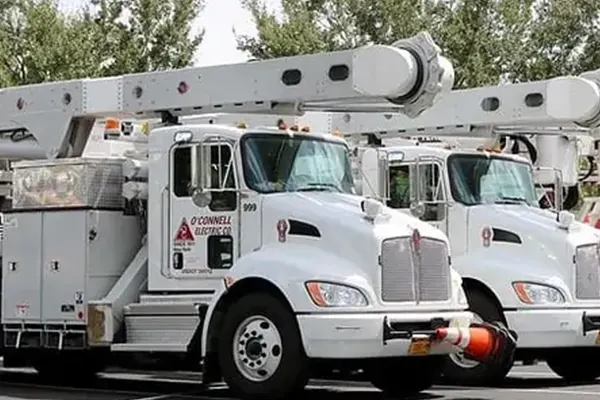
The Fast Start in a Lineman Career: Getting a CDL
Guest Author: National Lineman Careers
Our nations truck drivers keep us supplied with food and all sorts of supplies, without them we would not be able to live the lives we do today. There is another group that is often forgotten and taken for granted: linemen. When was the last time you flipped on the light switch and wondered if there power was going to successfully be delivered? Linemen quietly play a critical role in our every day lives.
The first step to becoming a journeymen lineman is becoming an apprentice. The duties of a lineman apprentice are to assist company linemen in building and maintaining electrical power systems. Lineman apprentice responsibilities include taking measurements and helping journeyman linemen with equipment and various tasks.
The path to apprenticeships can be union or non-union. Across both circles it is widely accepted that having a CDL is what will make you most competitive for these positions. Apprenticeships are programs where you are paid to learn and so naturally there are limited number of apprenticeships each year in the line trade.
Getting a CDL offers very strong career flexibility for lineman. Not only does it allow you to enter the workforce quicker it also gives your stronger negotiating and leverage for working on projects in other states. While some utility licenses have geographic boundaries, a CDL is valid in every state (assuming it is legally issued in the state that you reside). Journeymen lineman often receive lucrative job offers to work storm recovery and power restoration. Transportation for the crew plays a critical role is getting a crew on the job and safely prepared on the scene.
The linemen career continues to be in strong demand, however it is important to note that more and more job postings from large utility companies require that the applicant has his or her CDL. A CDL shows commitment to the career path as well as a willingness to invest time into the needed professional development.
Having a CDL as a linemen also makes you a valuable contribution to the crew with which you work. The line industry places a huge emphasis on safety and the proper transportation and vehicle preparation is no different. Team members on a job site will appreciate the value that a CDL brings to the table and the knowledge that it adds to the group work environment.
What specific type of CDL (Class A, B, or C) is most beneficial for a lineman career?
- For a lineman career, a Class A CDL is generally the most beneficial. This license allows you to operate large vehicles such as tractor-trailers and heavy-duty trucks often used in the utility industry. Some lineman positions may only require a Class B CDL, which permits driving straight trucks and smaller utility vehicles, but having a Class A offers greater flexibility and job opportunities.
What are the typical costs and time commitments associated with obtaining a CDL?
- The cost of obtaining a CDL can range from $3,000 to $8,000, depending on the state and the type of training program selected. Some utility companies or lineman apprenticeship programs may offer financial assistance or reimburse training costs. The time commitment varies but typically takes 3 to 7 weeks to complete a full-time CDL training course, followed by additional time for written and skills testing.
Are there any additional certifications or endorsements that complement a CDL for lineman work?
- Yes, certain endorsements can be valuable for linemen, including:
- Hazardous Materials (HazMat) Endorsement (H) – Useful for transporting fuel or hazardous substances needed for power equipment.
- Tanker Endorsement (N) – Helpful when working with vehicles that transport liquids, such as water trucks on job sites.
- Air Brakes Endorsement – Often required for operating heavy-duty trucks commonly used in the lineman field.
- Some companies may also require OSHA safety certifications and first aid/CPR training as additional qualifications to complement a CDL.
Disclaimer: The information in this article is based on the data available as of its writing and is meant to inform and guide prospective CDL trainees. For the most current information and specifics about CDL training programs, please contact SAGE Truck Driving Schools directly.
Please fill out the information below and our team will reach out to chat about your options.


